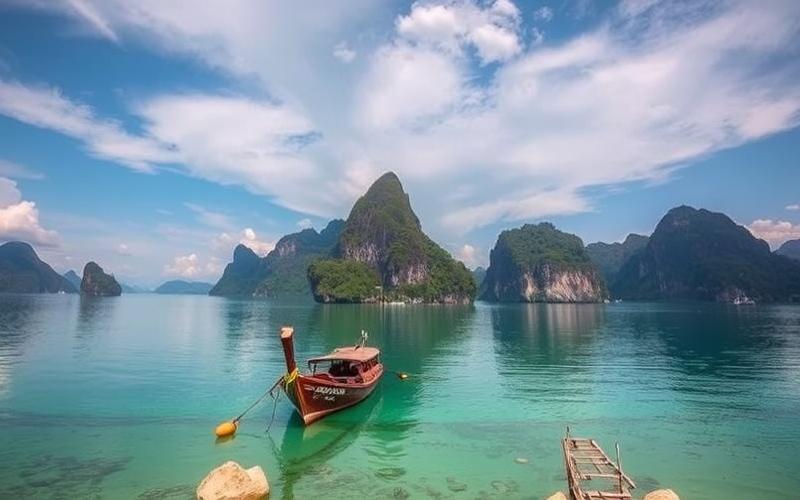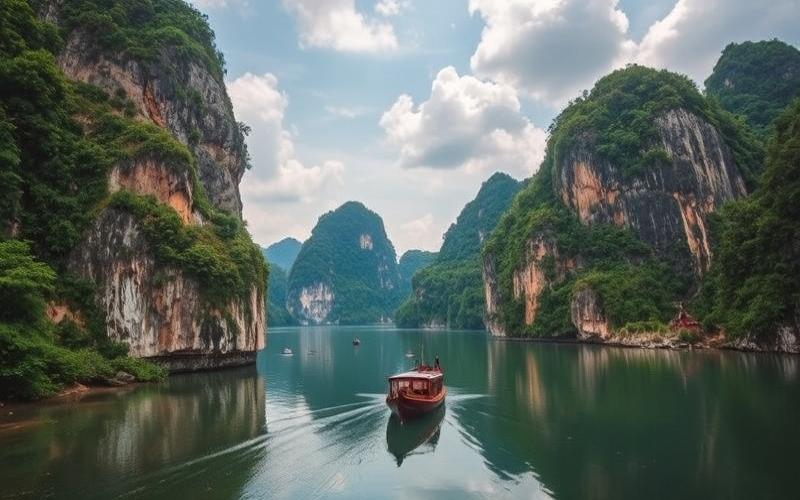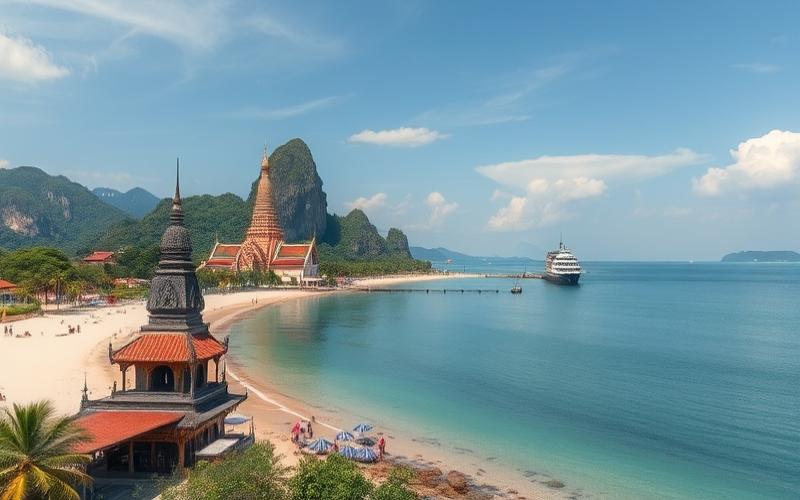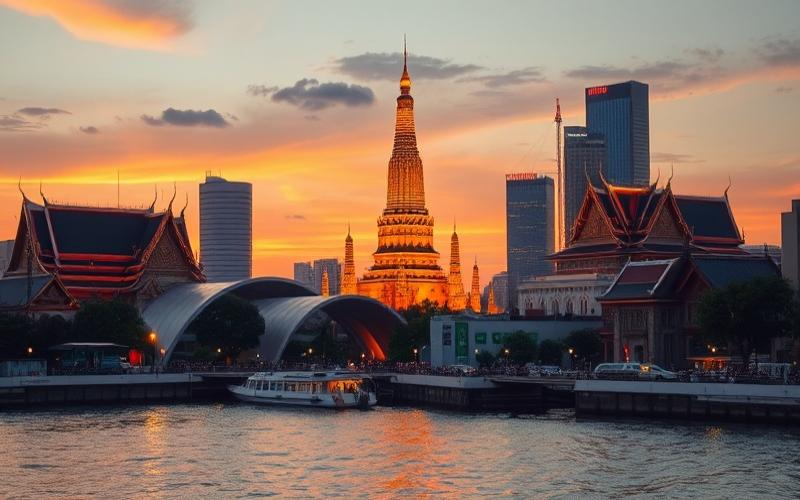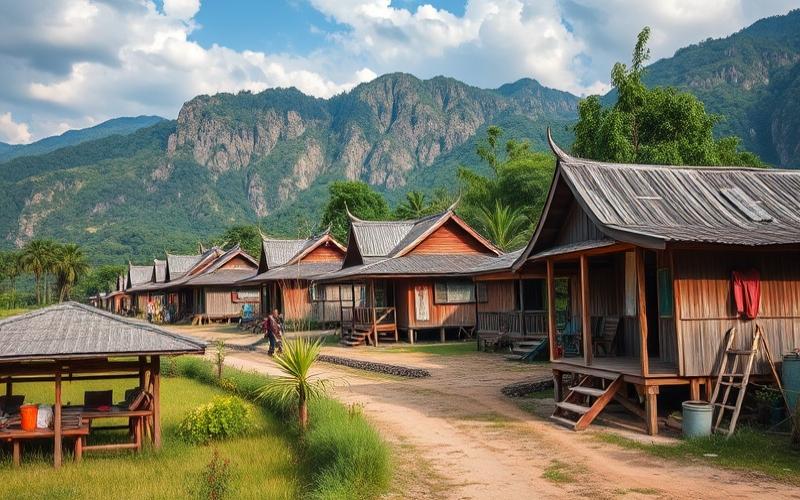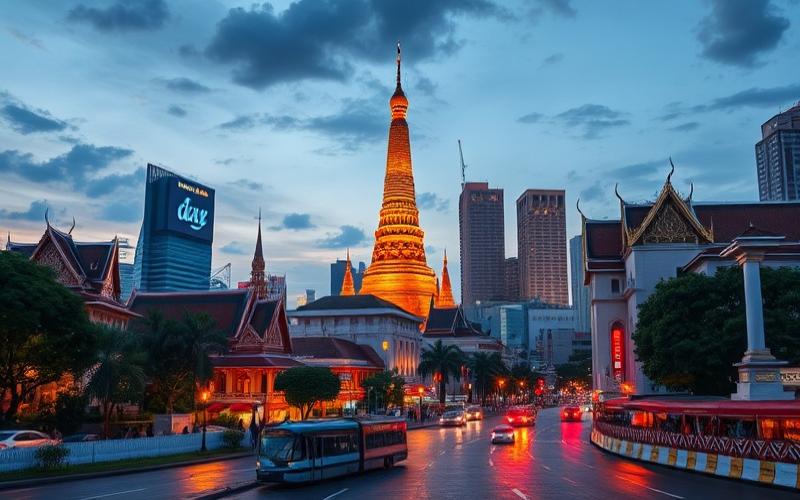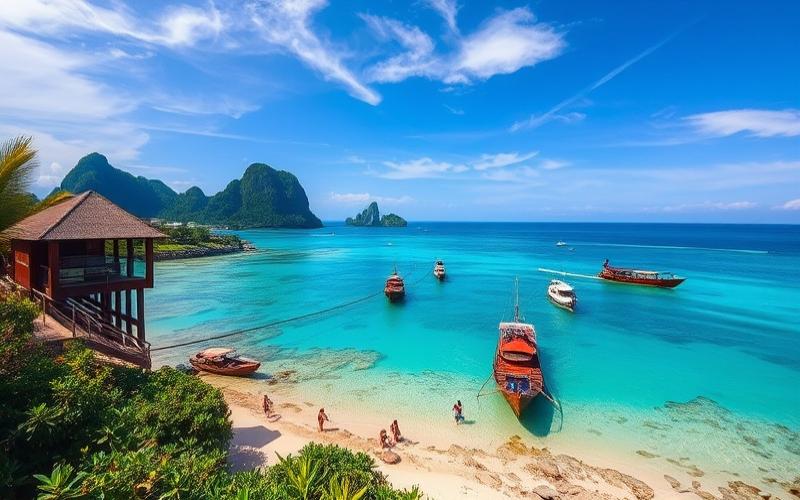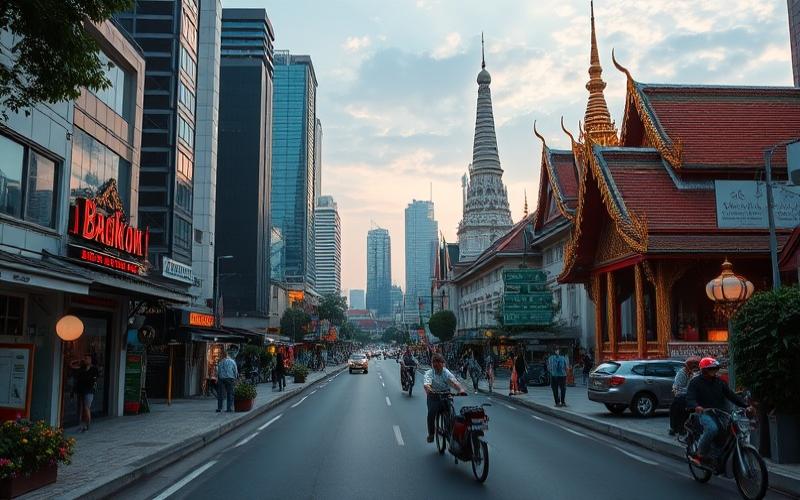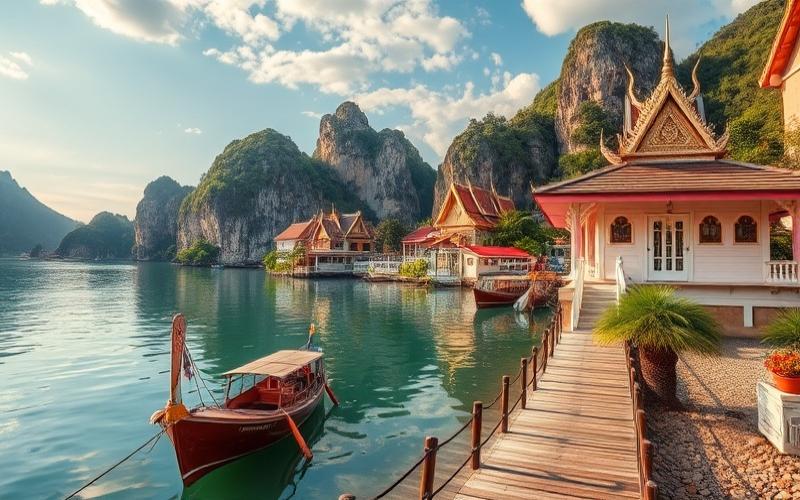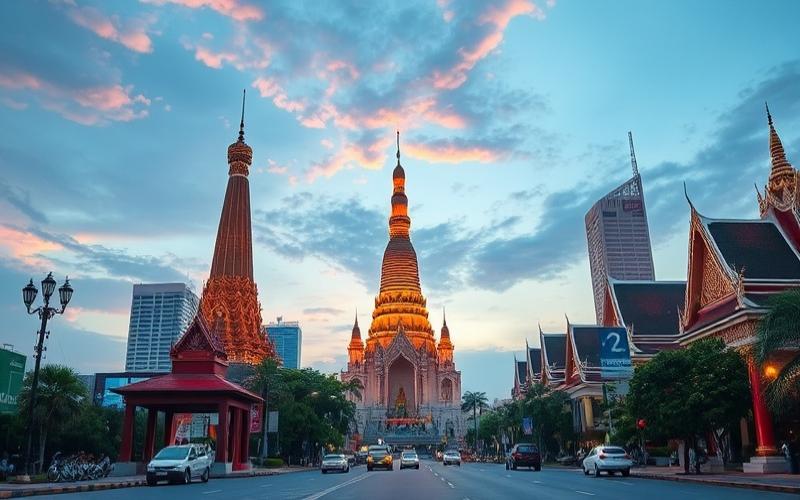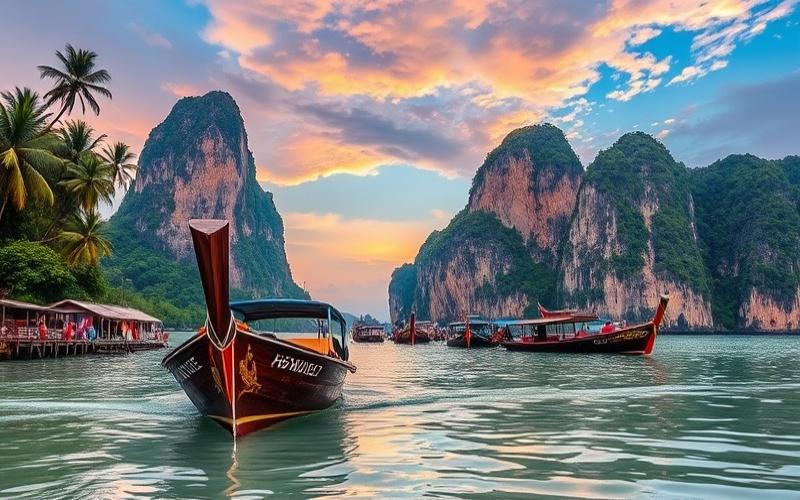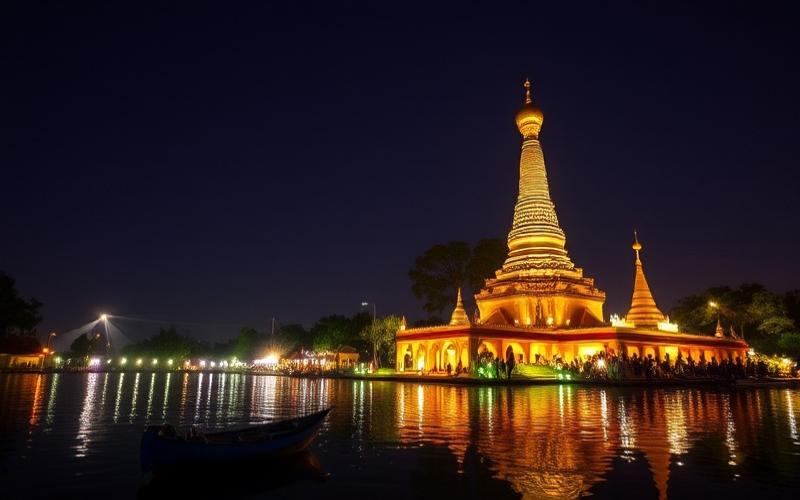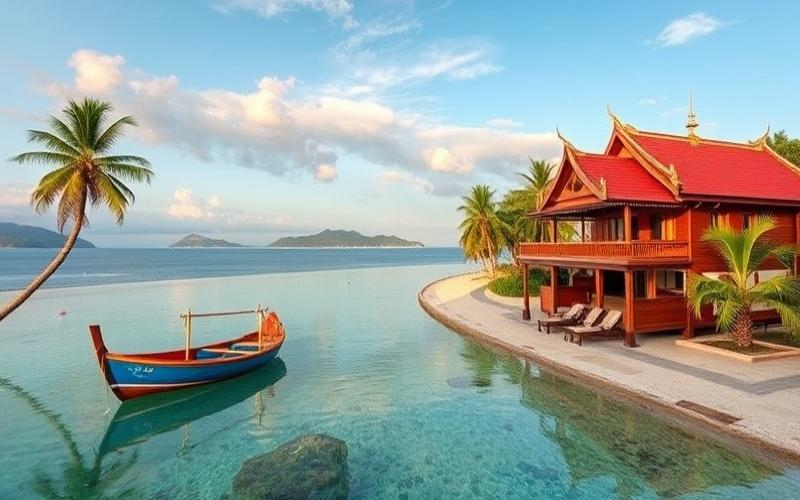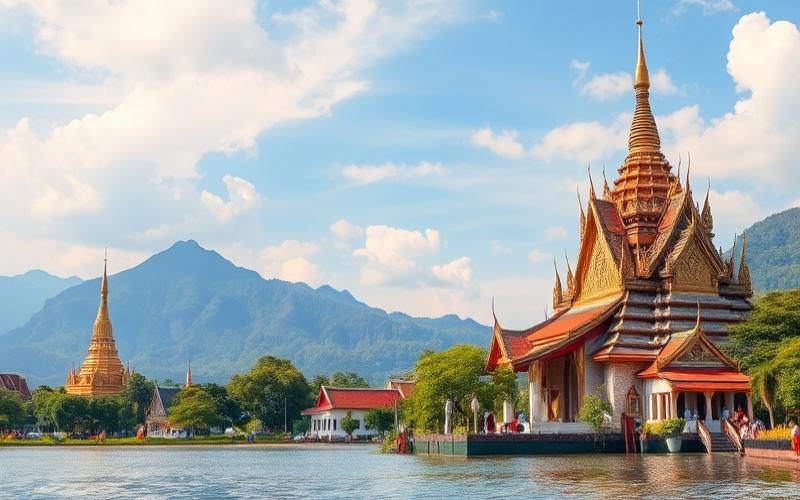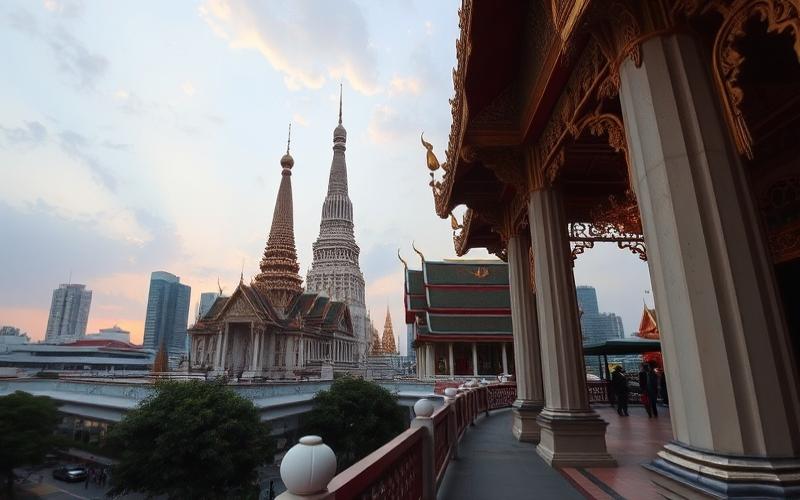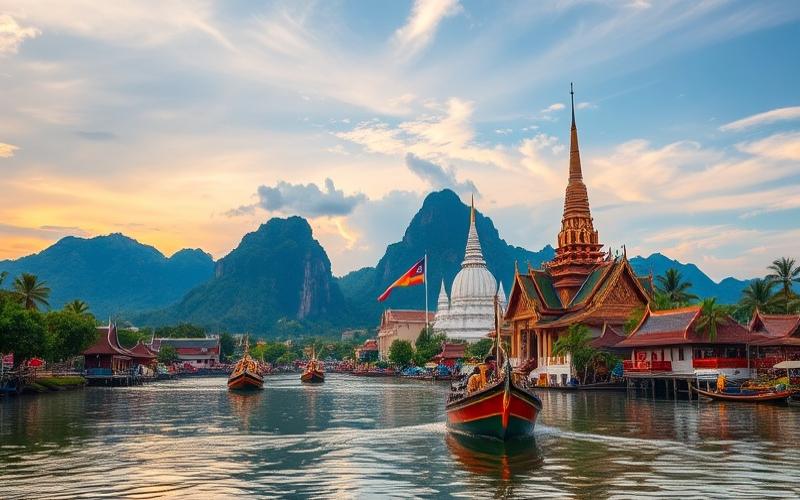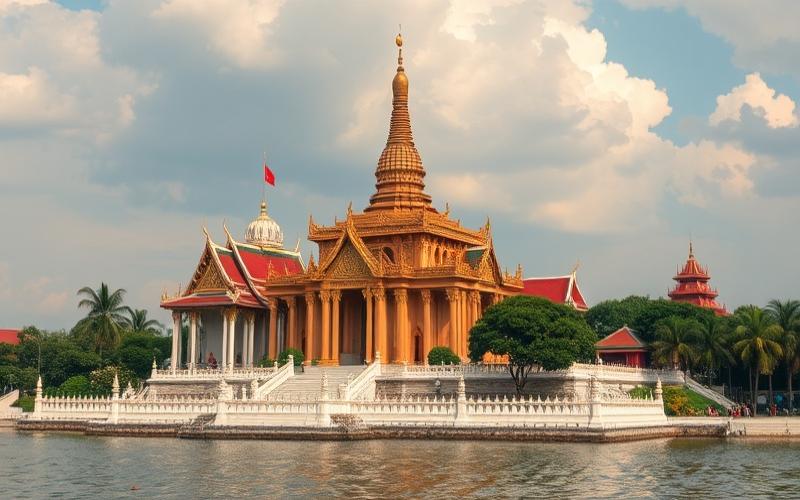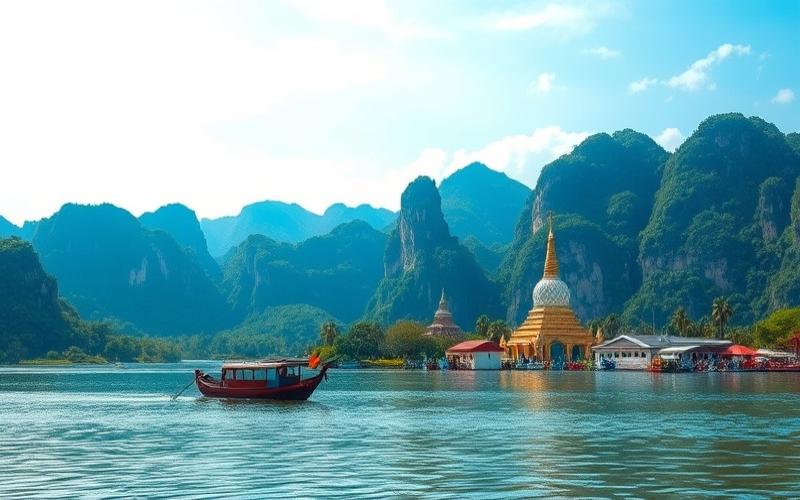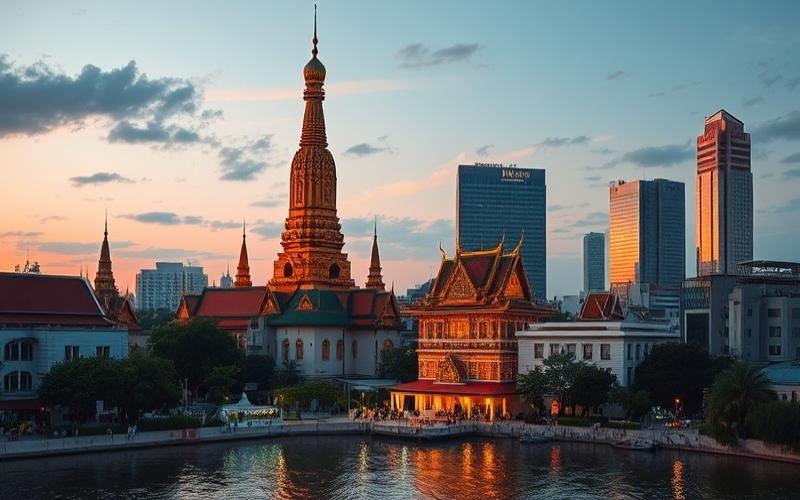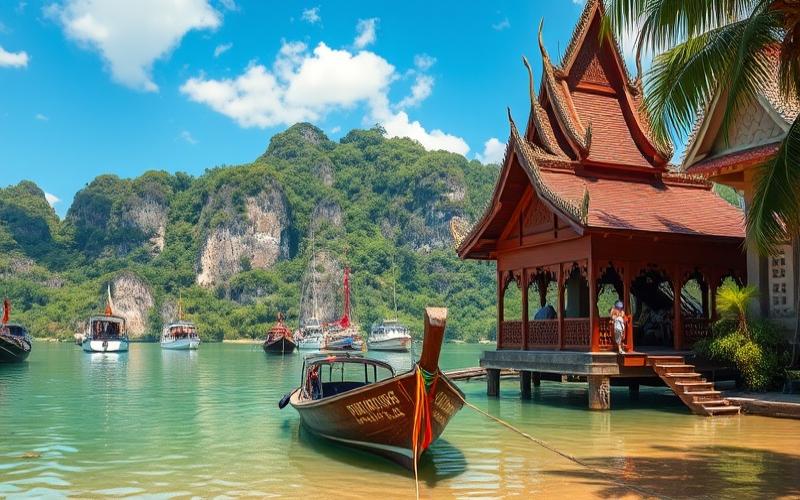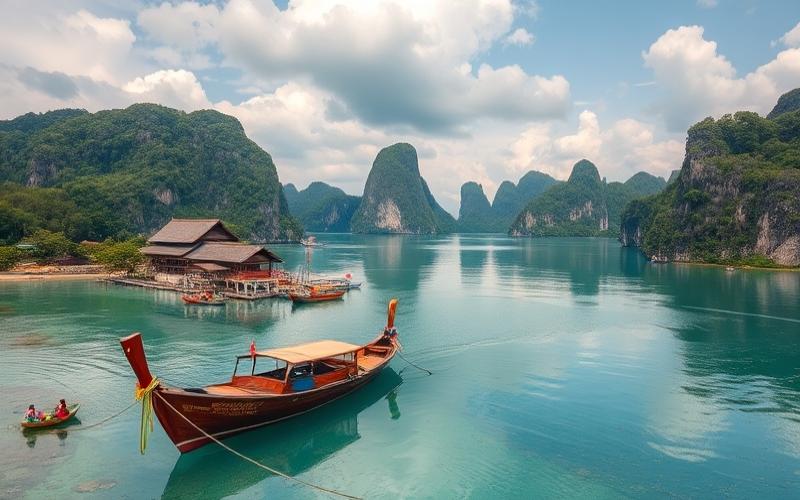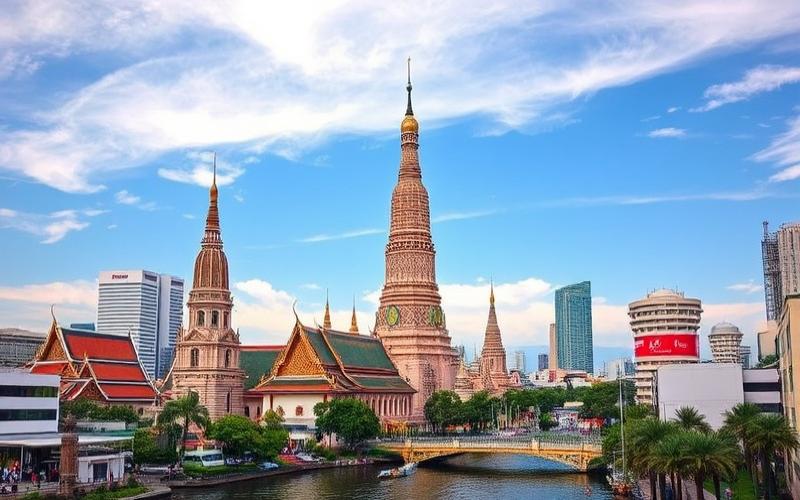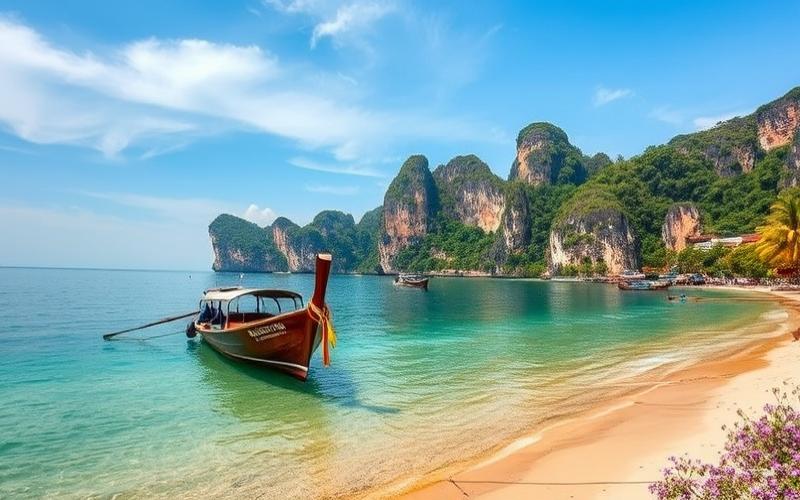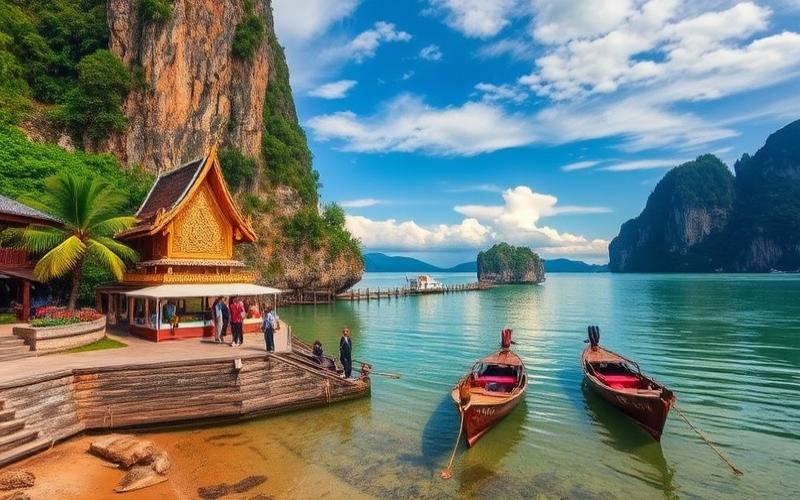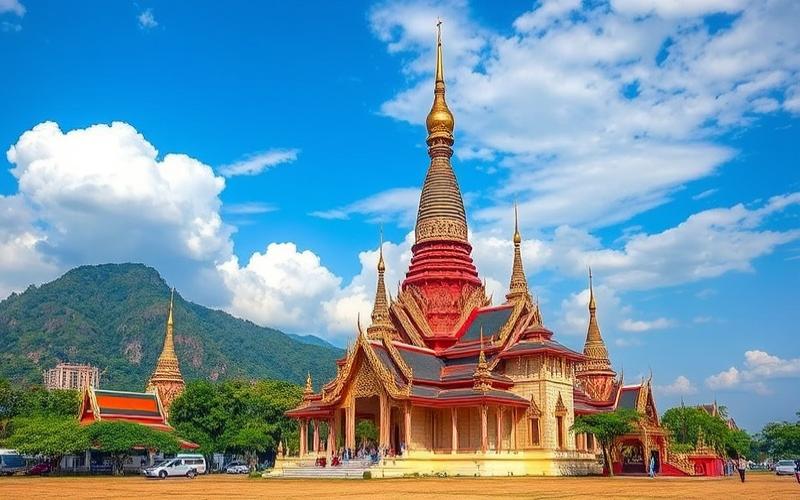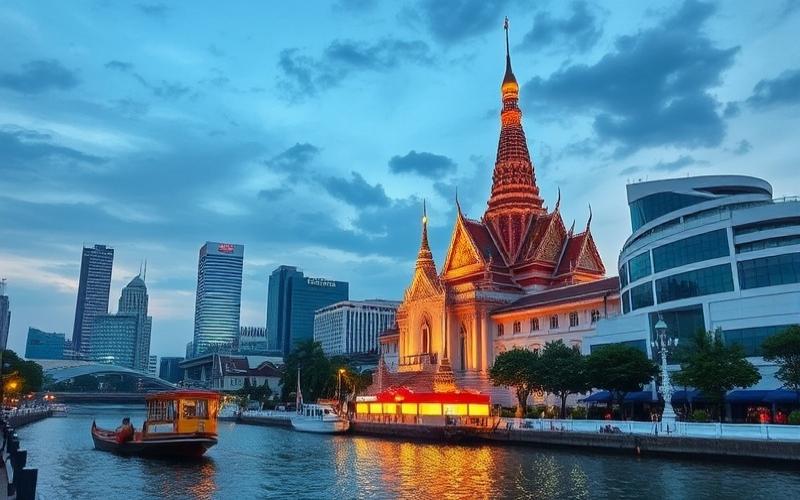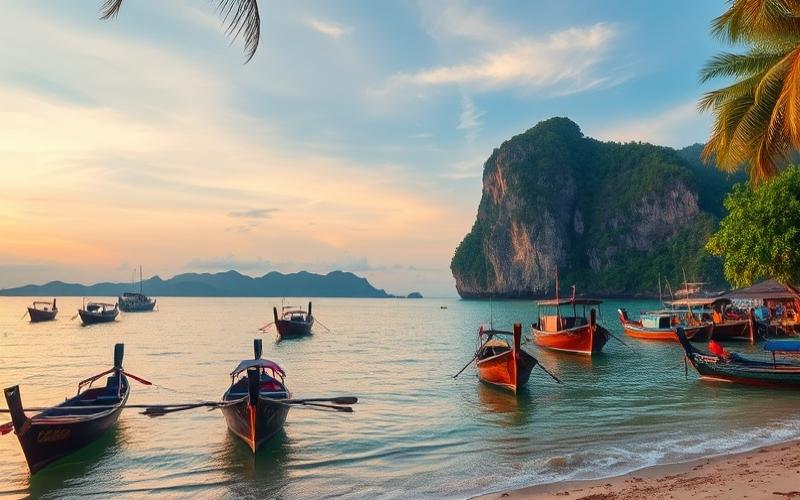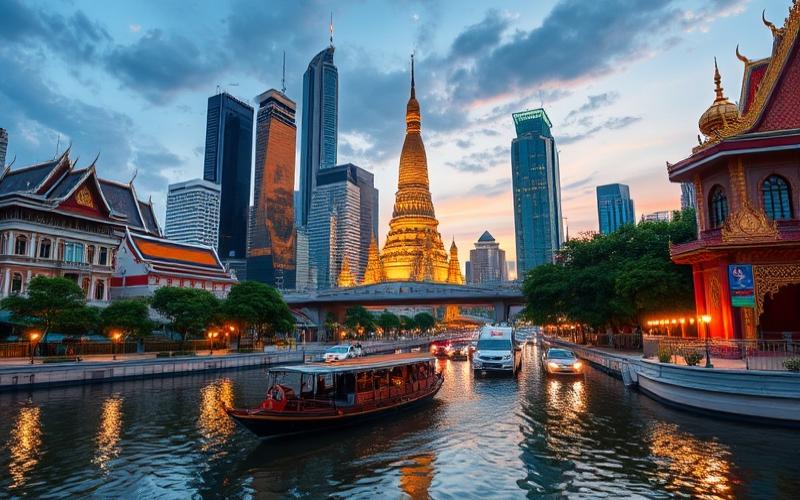
 Published on and written by Cyril Jarnias
Published on and written by Cyril Jarnias
Green Real Estate in Thailand: A Commitment to a Sustainable Future
Amid growing climate change challenges, Thailand is positioning itself as a key player in adopting sustainable practices through green real estate, a rapidly expanding sector that promises to transform the country’s urban landscape.
In 2025, the Thai government is intensifying its efforts by introducing strict green building standards and offering substantial subsidies to encourage developers and individuals to adopt eco-friendly solutions.
This commitment demonstrates a concrete determination to reduce carbon footprint while economically stimulating a promising sector, blending technological innovation with environmental respect.
How These Measures Are Shaping Thailand’s Sustainable Future
Let’s explore together how these initiatives promise to shape a more sustainable future in Thailand.
Good to Know:
Green real estate isn’t limited to new constructions. Numerous eco-friendly renovation projects are emerging, enabling the modernization of existing building stock while reducing its environmental impact.
Environmental Standards and BREEAM Certification in Thailand
The BREEAM certification (Building Research Establishment Environmental Assessment Method) is an international benchmark standard for assessing building environmental performance. It aims to improve energy efficiency and reduce construction ecological impact, with over 535,000 certified buildings worldwide. Its importance lies in its ability to provide a structured, recognized, and scientifically grounded approach to promoting sustainable development in the real estate sector.
In Thailand, BREEAM certification applies to both new buildings and renovations, covering a wide variety:
- Residential buildings
- Offices
- Shopping centers
- Hotels
- Factories and educational institutions
The main criteria assessed by BREEAM are:
- Energy management (consumption optimization, energy efficiency)
- Water consumption
- Waste management
- Pollution reduction
- Health quality and indoor comfort
- Sustainable transportation modes
- Environmental innovation
These criteria form a comprehensive approach that considers the building’s entire lifecycle.
Adoption by Thai real estate developers is progressing rapidly. Several major urban projects have obtained certification in recent years, particularly in business districts or new high-end residential areas. This approach is motivated by:
- Increased property valuation
- Operational cost reduction through energy savings
- Attractiveness for international investors sensitive to ESG issues
- Improved comfort and well-being for occupants
Notable examples in Thailand:
- “One Bangkok” building (central business district)
- “ICONSIAM” shopping center
- Certified hotel complex in Phuket
Outlook Through 2025:
| Development | Expected Impact |
|---|---|
| Progressive extension of international framework adapted to Thai context | Facilitates consideration of local climatic specificities |
| Strengthened government incentives | Accelerates adoption among developers |
| Increased awareness among established foreign companies | Significant rise in number of certified buildings |
Potential benefits for developers and occupants:
- Sustainable optimization of energy costs
- Differentiation in competitive real estate market
- Direct contribution to national climate and urban quality objectives
Thus, BREEAM certification constitutes a major strategic lever to accelerate the transition toward green real estate in Thailand while generating economic, social, and environmental added value.
Good to Know:
BREEAM certification is a leading international tool for assessing building environmental impact, highlighting the importance of sustainability in architecture and construction. In Thailand, BREEAM is applied to various building types, from commercial buildings to residential properties, examining criteria such as energy efficiency, water management, sustainable materials, and indoor environmental quality. Thai real estate developers increasingly recognize the importance of these environmental standards, with notable projects like Ploenchit Q House Park and Vertiq Condo having obtained certification. By 2025, BREEAM integration into green construction practices is expected to accelerate, offering benefits such as added building value and improved quality of life for occupants, while advancing the country’s sustainable development goals.
Energy Subsidies for Green Real Estate
Types of Energy Subsidies Available Starting 2025 for Green Real Estate in Thailand:
- Tax exemptions up to 8 years for projects using renewable sources (solar, wind, biomass, biogas, and waste-to-energy).
- Import duty waivers for green energy equipment.
- Guaranteed Feed-in Tariffs (FiT) ensuring stable revenue from green energy production.
- Low-interest loans for initial sustainable infrastructure financing.
- Specific support for public-private partnerships (PPP) in the energy sector.
Eligibility Criteria for Obtaining Subsidies:
- Be a company or developer registered with the Board of Investment (BOI).
- Present a real estate project integrating certified renewable energy technologies or systems.
- Comply with national and local environmental standards related to energy efficiency and sustainable construction.
- Submit detailed technical documentation including impact studies and financial projections demonstrating the project’s environmental contribution.
Required Administrative Procedures:
- Preparation of complete documentation with technical details about the green project (plans, expected certifications, financial analyses).
- Official submission to BOI or other competent government agencies via their dedicated platform.
- Evaluation by specialized committee examining technological innovation, financial viability, and regulatory compliance.
- Strict monitoring throughout implementation phase with interim reports required by granting agency.
Average Subsidy Amounts:
| Type of Assistance | Average Amount |
| BOI Tax Exemption | Up to 100% corporate taxes for 8 years |
| Green Loans | Preferential interest rate |
Impact of Eco-Construction on Thailand’s Real Estate Market
The rise of eco-construction is profoundly changing Thailand’s real estate market, driven by growing demand for sustainable properties and the country’s commitment to environmentally friendly practices.
Current Real Estate Market Trends in Eco-Construction:
- Thailand is experiencing rapid growth in the green building segment, with numerous projects integrating sustainable materials, energy-efficient technologies, responsible water management, and renewable energy use.
- Eco-constructions are becoming sector symbols, attracting buyers sensitive to the balance between modern comfort and environmental responsibility.
- Several leading developers, like MQDC or Sansiri, now incorporate sustainability criteria into their residential and commercial projects.
Economic Factors Influenced by Green Real Estate:
Rising Demand: Appetite for sustainable housing is intensifying, particularly among young urbanites and expatriates. This trend translates into increased valuation of eco-responsible properties.
Effect on Real Estate Prices:
| Property Type | Average Price/m² (THB) | Recent Trend |
| Conventional Construction | 80,000 – 120,000 | Stable or slight increase |
| Certified Eco-Construction | 110,000 – 160,000 | Marked increase |
Eco-friendly properties typically command a 10 to 30% premium compared to conventional markets, justified by energy savings, material durability, and increased attractiveness for rental or resale.
Foreign and Local Investments:
- Tax benefits, regulatory stability, and prospects for sustained growth are attracting increasing international investors, particularly European and Chinese, as well as major local groups.
- The share of investments directed toward green real estate continues to grow, reinforced by tax incentives and attractive legislative framework.
Consumer Preferences:
- Thai buyers now prioritize:
- Energy efficiency (insulation, solar panels, green home automation)
- Green spaces and sustainable water management
- Proximity to nature and sustainable urban infrastructure
- Developers are adapting their offerings to meet these new expectations, favoring integration of environmental certifications (LEED, EDGE, etc.).
Notable Eco-Construction Examples:
- The Forestias (Bangkok): Urban neighborhood combining biodiversity, green spaces, and low-carbon footprint buildings.
- Whizdom 101: Mixed-use project integrating offices, housing, and commerce, designed around soft mobility and smart resource management.
- Sansiri’s The Monument Thong Lo: Residential building certified for energy efficiency and use of local and recycled materials.
Market Reception:
These projects are meeting with strong success among middle and upper classes, as well as foreign investors, confirming the attractiveness of green real estate.
Long-Term Implications and 2025 Outlook:
- Environmental standards planned for 2025, combined with new subsidies, should stimulate eco-construction:
- Tax relief for certified green projects
- Subsidies for integrating renewable energy solutions
- Strengthened certification criteria for new constructions
Expected Effects:
- Acceleration of green real estate share in total supply
- Progressive increase in average prices, but long-term value growth for eco-responsible properties
- Possible slowdown for traditional projects not meeting new standards
Eco-construction is now establishing itself as a structuring driver of Thailand’s real estate market, redefining consumer expectations and investment strategies, while consolidating the country’s position as a regional leader in sustainable development.
Good to Know:
In Thailand, the rise of eco-construction is strongly influencing the real estate market, with growing demand for sustainable housing pushing prices upward. This phenomenon is fueled by increased consumer interest in environmentally friendly homes, encouraging both foreign and local investors to innovate in this sector. Iconic projects like Chiang Mai’s eco-residential complex exemplify this trend and receive favorable reception. However, 2025 forecasts indicate that new government standards and subsidies could intensify these dynamics or, conversely, represent obstacles for some developers. The growing interest in sustainability could thus reshape Thailand’s real estate market long-term, making it essential for sector players to prepare for these changes.
State Aid for Sustainable Real Estate Projects
Types of Subsidies and Tax Incentives
The Thai government offers a range of tax benefits and direct subsidies to stimulate construction and renovation of eco-friendly buildings:
- Corporate tax reductions for companies investing in sustainable real estate projects.
- Specific tax credits related to use of green materials or technologies (solar energy, high-performance insulation, etc.).
- Targeted financial assistance, particularly for SMEs: the minimum threshold to access certain subsidies has been lowered to 0.5 million baht (approximately €13,600).
- Temporary tax exemptions, for example on land rights or local taxes in certain priority zones.
- Special schemes such as the “smart visa” facilitating attraction of foreign expertise in technological and sustainable sectors.
| Incentive Type | Main Terms | Target Beneficiaries |
|---|---|---|
| Tax Reduction/Exemption | Corporate tax reduced/exempted based on “green” criteria | Real estate developers, companies |
| Direct Subsidy | Financial investment assistance | SMEs, start-ups |
| Tax Credit | Partial reimbursement of eligible expenses | All construction stakeholders |
| Regional Incentive | Enhanced benefits in less industrialized zones | Projects outside major urban centers |
Eligibility Criteria
To benefit from public aid for sustainable real estate projects, several conditions must be met:
- The project must demonstrate substantial environmental benefit (carbon reduction, increased energy efficiency…).
- Certified use of eco-friendly materials or significant integration of renewable energies.
- Strict compliance with Thai national standards for green construction.
- The beneficiary company must demonstrate proven economic and technological solidity without engaging in environmentally harmful activities.
In some cases:
- Aid is conditional on maintaining the project for a determined minimum duration;
- For land holding via promoted company: mandatory land transfer in case of early termination.
Potential Amounts and Granted Benefits
Amounts vary according to project nature:
- Direct subsidies potentially reaching several hundred thousand euros per exemplary operation;
- Tax reductions up to total exemption for 3 to 8 years on certain taxes;
For SMEs,
The minimum threshold triggering aid access has been significantly reduced to facilitate their access.
Underlying National Objectives
These measures are part of the national “Thailand 4.0” strategy aiming for:
- Transformation toward an innovative low-carbon economy,
- Acceleration of industrial competitiveness through massive integration of clean technologies,
- More balanced territorial development through reinforced support for less industrialized regions,
The stated objective is both environmental and economic: drastically reduce emissions while creating a new dynamic industrial ecosystem around sustainable building.
Public-Private Collaborations
Several collaborative forms exist between public agencies (Board of Investment – BOI, sectoral ministries) and private actors:
- Technical co-development with expertise sharing
- Joint funding for labeled project calls
- Regional platforms facilitating start-up/institutional investor connections
- Framework agreements aiming to accelerate sector innovation (e.g., smart cities)
Schemes like participatory real estate crowdfunding also enable both individuals and local or foreign institutional players to co-finance these innovative operations.
Concrete Examples & Positive Impact
Some notable achievements having directly benefited from public schemes:
- Recent development of energy self-sufficient residential neighborhoods near Bangkok having received BOI credits/subsidies – measured decrease >30% local energy consumption; direct creation >150 green jobs.
- High-end hotel renovation integrating solar panels/smart energy management with fiscal support – obtaining international LEED/BREEAM certifications; immediate valuation (+10% market price); strengthened image among responsible international clientele.
- Pilot programs combining affordable housing & eco-efficient collective infrastructure co-financed public/private with measured results: estimated local annual CO₂ emissions reduction >20%, neighborhood quality of life improvement evidenced by increased economic/commercial attractiveness.
Government policies have not only enabled rapid growth of the green real estate sector but also actively contributed to Thailand’s increasing international positioning among Asian leaders in sustainable urban development.
Good to Know:
In Thailand, the government offers various subsidies and tax incentives to encourage construction and renovation of eco-friendly buildings, as part of its national sustainable development objectives. Eligible projects must meet precise criteria, particularly regarding energy efficiency and use of sustainable materials. Subsidies can cover up to 20% of project costs, while tax benefits include significant corporate tax reductions for real estate developers. To maximize aid effectiveness, collaborations are often established between government agencies and the private sector, as evidenced by the Silom district renovation project, which benefited from these aids and, in return, boosted the local economy while reducing carbon footprint.
Disclaimer: The information provided on this website is for informational purposes only and does not constitute financial, legal, or professional advice. We encourage you to consult qualified experts before making any investment, real estate, or expatriation decisions. Although we strive to maintain up-to-date and accurate information, we do not guarantee the completeness, accuracy, or timeliness of the proposed content. As investment and expatriation involve risks, we disclaim any liability for potential losses or damages arising from the use of this site. Your use of this site confirms your acceptance of these terms and your understanding of the associated risks.




